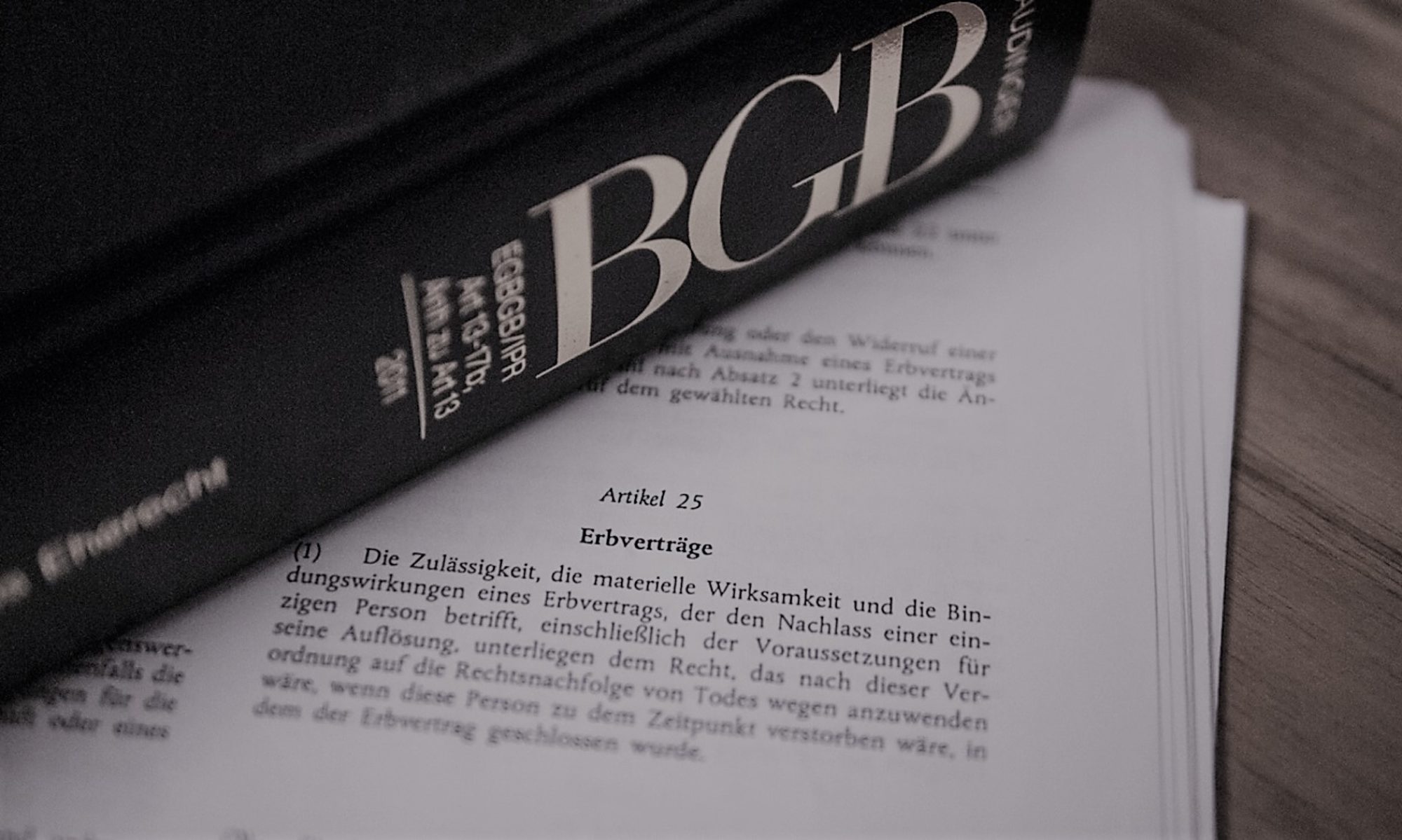If a testator has not left a disposition of property upon death (will or contract of inheritance), their assets pass to their legal heirsupon death. Legal heirs are primarily the spouse and descendants (children, alternatively grandchildren, alternatively great-grandchildren). Alternatively, the parents and their descendants (siblings, nephews, nieces), furthermore alternatively the grandparents and their descendants (aunts, uncles, cousins, etc.).
The legal heirs from the close family circle are entitled to a so-called compulsory portion . If the testator excludes them from the inheritance by disposition of property upon death (will or inheritance contract), they can demand the so-called compulsory portion. Descendants of the deceased (children, grandchildren, great-grandchildren) are entitled to a compulsory portion in this sense if they would have inherited without the disposition of property upon death. This is only the case for grandchildren or great-grandchildren if they would have been entitled to inherit instead of the previous generation of parents, in particular if the respective parent had already predeceased the deceased. Furthermore, parents are in principle only entitled to a compulsory portion if there are no children (see Section 2309 BGB).
Persons legally entitled to an inheritance and a compulsory portion can waive their right to an inheritance and/or their right to a compulsory portion by means of a notarized contract with the future testator. The waiver of a compulsory portion is particularly relevant in practice because it gives the testator the opportunity to dispose of the estate freely without being burdened by a possible claim for a compulsory portion. The person entitled to a compulsory portion can then no longer make any claims in the event of death. To this end, the parties involved often agree a settlement to be paid during their lifetime in the agreement to waive the compulsory portion. Some spouses also agree a mutual waiver of compulsory portion to enable the first spouse to inherit their assets freely. This is particularly the case if there are children from a previous relationship who are to inherit the majority of the assets.
However, a complete waiver of inheritance is generally not necessary. This is because the testator can already exclude the statutory right of inheritance by making a different disposition of property upon death (will or contract of inheritance) in which he or she appoints other persons as heirs. A waiver of a compulsory portion is then sufficient to establish complete freedom of disposition. In addition, a waiver of inheritance can also have a negative effect because it can increase the compulsory portions of other persons entitled to a compulsory portion.
It is currently unclear whether a waiver of inheritance or compulsory portion, which is possible and effective under German law, also remains effective if the testator later moves abroad and dies there. If the inheritance law applicable there does not recognize such a waiver, it is possible that the waiver will no longer have any effect. It would then often not be clear whether any compensation paid for a waiver would have to be repaid. A testator who may later move abroad should therefore - as far as possible - take precautions by making a choice of law in favor of German inheritance law. However, such a choice of law is only legally possible if the testator is a German citizen. If a choice of law in favor of German law is out of the question because the testator is a foreign national, he or she should seek advice before moving. In addition, in the event of a waiver of a compulsory portion in return for a settlement, the parties involved should agree whether and to what extent the settlement is to be repaid if the waiver later proves to be invalid (due to relocation abroad).
Please contact us if you need advice on waiving an inheritance or compulsory portion or if we can prepare a corresponding deed for you!

